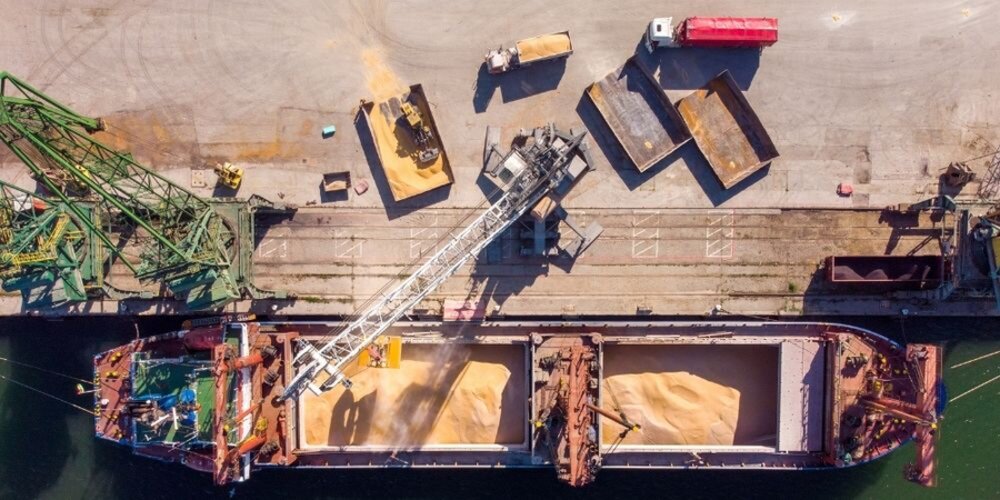TT Talk: Bulk Terminal Automation: Enhancing Safety, Accuracy and Resilience

As the maritime industry continues to evolve in response to global pressures, ranging from climate volatility to labour shortages and rising operational costs, bulk cargo terminals are increasingly turning to automation. While container terminals have long been the focus of digital transformation and automation, are bulk terminals beginning to embrace automation as a strategic imperative?
Bulk terminal developments in China provide a compelling case study, to support the automation of bulk terminals. Terminals such as Shanghai Luojing Phase II, Tianjin Nanjiang, and Caofeidian in Tangshan have transitioned from semi-automated to fully automated operations. These facilities now use artificial intelligence (AI) and integrated control systems to manage loading, unloading, and storage with minimal human intervention.
Safety First
Bulk terminals can be high-risk environments. Manual operations around cranes, hoppers, and conveyors expose workers to hazards such as falls, collisions, and exposure to dust or toxic gases. Automation has the potential to significantly reduces the need for personnel in these high-risk zones, thereby lowering the likelihood of accidents and associated claims.
From a loss prevention perspective, this is a critical development. Fewer incidents mean fewer claims, lower insurance premiums, and improved risk profiles. For TT Club, automation represents a powerful tool in our ongoing mission to support safer and more secure global trade.
Accuracy and Control
Automation also brings a step change in inventory and stockpile management. AI-powered sensors and digital twins enable real-time tracking of cargo volumes, moisture content, and storage conditions. This improves operational planning, reduces shrinkage and contamination, and helps avoid disputes over cargo condition or quantity.
For terminal operators, this translates into tighter control, better forecasting, and improved customer confidence. For insurers, it means fewer claims related to inventory management, spoilage, or handling errors.
Operational and Environmental Benefits
Automated bulk terminals can increase production efficiency by up to 50%, reduce vessel turnaround times, and lower operating costs by more than 50% in some cases. These gains are achieved through optimised crane movements, conveyor operations, and cargo tracking.
Environmental performance also improves. Smart terminals are better equipped to monitor and reduce emissions. The use of electric and hybrid equipment, combined with AI-optimised energy use, contributes to lower carbon footprints and supports compliance with tightening environmental regulations.
Building Resilience
Automation enhances resilience. During the COVID-19 pandemic and recent extreme weather events, automated terminals were able to maintain operations with minimal disruption. As climate-related disruptions become more frequent and with increased geopolitical instability, the ability to operate safely and efficiently under adverse conditions and economic uncertainty, could be a key differentiator.
Strategic Considerations
For port authorities and terminal operators, the transition to automation is not just a technological upgrade—it is a strategic investment. However, successful implementation requires:
• Infrastructure readiness and digital integration
• Robust cybersecurity frameworks
• Workforce reskilling and stakeholder engagement
• Compliance with local and international standards
Conclusion
The automation of bulk terminals is no longer a futuristic concept - it is a present-day solution to some of the industry’s most pressing challenges. For port authorities and terminal operators, embracing this shift is not just about staying competitive; it’s about building a smarter, safer, and more sustainable future.
TT Club remains committed to supporting our Members through this transition. From risk assessment and loss prevention to operational guidance, we stand ready to help ports navigate these complexities.
Documents
TT_Talk_-_Edition_325__Chinese_.pdf (702 kB) 08/10/2025
- Date
- 04/08/2025





